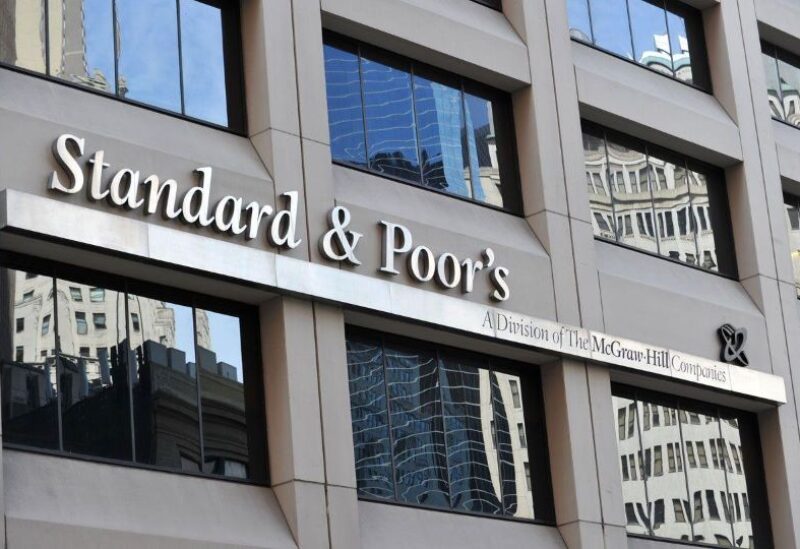
S&P downgrades Russia ratings
For the second time in a week, S&P Global Ratings lowered Russia’s credit rating further into “junk” territory, as the country faces increasing pressure from a variety of sanctions and other measures aimed at its economy, boosting the danger of a default.
After being lowered to BB+ last Friday, the country’s ratings were cut eight notches to CCC- on Thursday, according to S&P. The sovereign ratings are still on negative watch, which indicates they might be downgraded further in the coming weeks, according to S&P.
Due to a wave of US and EU sanctions, Fitch and Moody’s Investors Service lowered Russia’s sovereign credit rating six notches to “junk” or non-investment grade status on Thursday. Downgrading a country’s credit rating indicates that it is experiencing financial instability or may lack enough cash reserves in relation to its requirements and financial obligations, making it speculative and posing a high credit risk. It will be difficult for Russia and Russian enterprises to raise funds on a worldwide scale as a result of this.
S&P said the latest downgrading was prompted by fresh G7 government sanctions put on Russia in response to its military offensive in Ukraine, which are aimed at the country’s economy and Moscow’s response.
Sanctions and other measures caused the Russian rouble to plummet by more than 28% against the US dollar, a new low against the greenback, prompting a run on the country’s banks. To protect the country’s $1.5 trillion economy from the economic impact, the Bank of Russia raised interest rates and introduced capital controls. The Moscow stock exchange also crashed last week as a result of punitive measures, with the central bank banning trading for the last five days.
The combination of measures, according to S&P, “will likely substantially enhance the probability of default.”
“We estimate that international sanctions have cut Russia’s available foreign exchange reserves in half, including foreign currency deposits and securities held in the United States, the European Union, and Japan,” the rating agency stated.
“During a period of increased foreign currency demand, this has significantly impacted Russia’s external liquidity. The sanctions also imposed limits on Russian banking system access to the global financial system, markets, and infrastructure, denying or considerably limiting it.”
Capital controls that prohibit cross-border financial transfers, as well as private sector and government debt service payments, “would very likely limit the ability of nonresident domestic and foreign currency bondholders to receive interest and/or principal payments on time,” according to S&P.
The US Treasury has blocked Americans from transacting with the Bank of Russia, the Russian Direct Investment Fund, and the country’s Ministry of Finance, while key Russian banks have been banned from the Swift global banking network.
Sberbank, a Russian lender, announced on Wednesday that it is abandoning European markets due to large cash outflows and threats to its employees and property. The European Union announced on Wednesday that seven large Russian banks will be barred from using the Swift messaging system, which facilitates worldwide financial transactions, as of March 12.
The London Stock Exchange halted trading in 28 Russian-linked equities on Thursday. MSCI and FTSE Russell, global index providers, are also banning Russian equities from their indexes, which are followed by investors with trillions of dollars in assets under management, halting a huge portion of the investment-fund sector from pouring money into Russia.
Russia’s equities market is deemed “uninvestable” by the majority of market participants, and its assets will be withdrawn from emerging markets indexes on March 9, according to MSCI. On March 7, FTSE Russell will deduct Russia equities from its index at a zero value.
Russia’s energy business is being impacted by the military offensive in Ukraine. Russia produces approximately 10 million barrels of oil per day, and European countries rely on Russia for gas as well.
“Two-thirds of Russian oil has yet to find buyers a week into the conflict. Some companies refuse to do business with Russia because the reputational risk is too high, while others simply try to reduce their exposure to Russian oil as soon as possible and find alternative suppliers in anticipation of future sanctions “Ipek Ozkardeskaya, a senior analyst at Swissquote, echoed this sentiment.
A slew of US and European corporations have pulled out of Russia, either by suspending operations or abstaining from investing in their existing activities there.
ExxonMobil will cease operations in Russia and will not make any fresh investments there. According to its most recent annual report, it will cease operations and begin steps to depart the business, which is worth more than $4 billion.
TotalEnergies, the French energy behemoth, said it supports EU sanctions against Russia in response to the country’s military offensive in Ukraine “regardless of the consequences [now being examined] on its activities in Russia,” but stopped short of stating it would divest or leave the country. It owns 19.4 percent of Novatek and other oil and gas projects.
TotalEnergies has announced that it will no longer invest in new projects in Russia and has “condemned” Russia’s military action in Ukraine.
OMV also said that it has cancelled a sale deal with Gazprom for a 24.98 percent stake in the Urengoy gas and condensate field development, and that it will reassess its role in the Nord Stream 2 Pipeline.
Rival BP has agreed to sell its 20% investment in Rosneft, while Shell has announced the end of its partnership with Gazprom. According to Reuters, Eni, an Italian oil corporation, proposes to sell its share of the Blue Stream pipeline, which transports Russian gas to Turkey and is co-owned by Russia’s Gazprom. Centrica, the owner of British Gas, has announced that it will end its gas supply arrangements with Russian rivals, notably Gazprom.